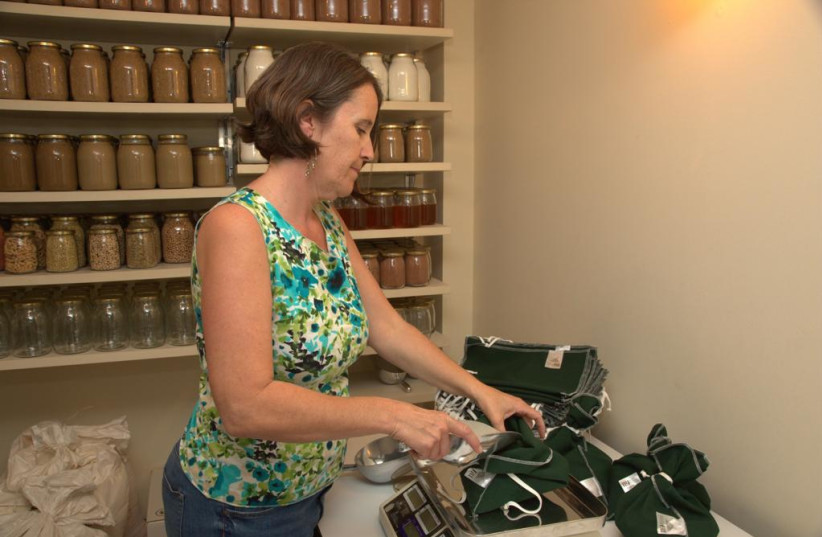For many, the image of a friendly fellow stopping by the house every few days to pick up your empty milk bottles and supply you with a couple of full ones is an idyllic business model sealed forever in a 1950s Americana nostalgia vault – but for more and more customers of the start-up WeFill, it’s becoming a regular part of modern life.
On a regular, scheduled basis, subscribers to WeFill are treated to a fresh shipment of glass jars and cloth bags filled with grains, pasta, tehina, candy, dried fruit and a slew of other products that they’ve ordered, which is hand-delivered to their door. The last shipment’s box and empty containers are taken back by the company, sterilized, and used for future shipments.
In working with this reusable container-based model, WeFill is able to offer two main benefits: somewhat lower prices for the end consumer, and a huge amount of reduced waste due to the elimination of single-use packaging for frequently-used grocery staples.
The company’s CEO, Alison McLernon, holds a master’s degree in environmental studies and has spent her whole career in the environmental field. She explained that reducing plastic waste is the primary motivator behind the company’s inception.
“What it came from was frustration at how difficult it is to kind of live in a zero waste lifestyle in Israel,”
Alison McLernon, WeFill CEO

“What it came from was frustration at how difficult it is to kind of live in a zero waste lifestyle in Israel,” said McLernon. A mother of three, she noted that working to minimize household waste while stocking a pantry is “like a full-time job,” due to the need to hop around between various markets to find everything one needs.
“That's the very, very basic idea behind my business: reducing waste, made easy,” she said. “I want to make it easy for people to reduce their waste so that they'll do it. Because when things are difficult, you try, and then you have a hard day and you [stop trying]; but if it's easy, it's easy.”
With that principle as her guiding star, McLernon is driving her business to success – in a sense, literally, as she acts as the company’s CEO as well as its delivery driver.
Currently, WeFill supplies zero-waste goods to customers in the center of Israel within 4 days of delivery, and to customers in Jerusalem and the northern region on a monthly basis. These monthly deliveries create less carbon emissions from delivery, as they bundle several deliveries into one major trip from the center.
At present, WeFill doesn’t reach Judea and Samaria, though the company’s delivery range is on McLernon’s roadmap. “I kind of debated – I’ve had a lot of actual requests to go out there,” she said. Her intention is to eventually reach the entire country, from the Galil to the Arava and everywhere in between - but that will have to wait for now.
“I want to keep it where it is now and build the business, and when the business is growing, then to start to expand geographically again, because I would like to basically deliver to all of Israel. That’s what I really want to do.”
As a small business owner, though, McLernon faces a fair number of challenges, particularly given the current rise in the cost of living. “Right now, my business couldn’t support itself on the long term. It’s a new business, it’s only been going for a year – it still needs to grow in order to be financially viable.”
McLernon's plan
Despite that, McLernon described herself as “an eternal optimist,” explaining that given enough time, she believes the hurdles faced by the company – such as time-consuming order packing and deliveries – can and will be solved.
“I’m not that kind of person, I don’t really see things as an issue. I just see things that sooner or later, I’m gonna have to outsource – delivery takes me a long time, so sooner or later, I’m gonna get someone to do my deliveries. It’s just a scaling thing,” she said.
Down the road, McLernon expressed that she wouldn’t be opposed to forming partnerships with investors, in order to kick the company and its mission statement into full force.
“I would love that it would be a really big business. That’s kind of my dream because that means that we’re doing what we’re supposed to be doing,” she said. “That’s why I’m here. I want to help. I want there to be less plastic in this world.”
